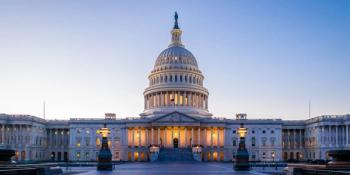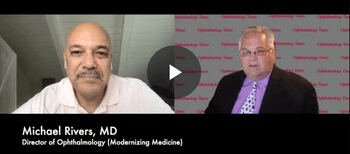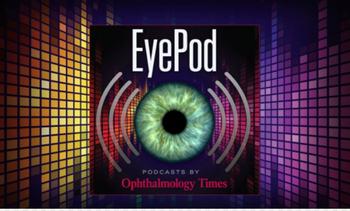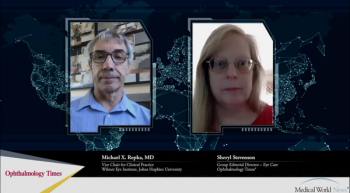
Medicare’s 2023 fee schedule includes cuts in reimbursement, which some groups say could lead to reduced access to care to patients who need it most.

Medicare’s 2023 fee schedule includes cuts in reimbursement, which some groups say could lead to reduced access to care to patients who need it most.

The FDA describes the test as a web-based, self-guided software application that consumers can access using a touchscreen mobile device and internet-connected computer.

AB 2236 would have allowed optometrists to perform anterior segment laser and minor procedures which involve the use of a scalpel or injections.

The Florida Second District Court of Appeal has renewed a woman’s lawsuit claiming she suffered permanent eye damage when her ophthalmologist misdiagnosed her during nasal surgery. In its opinion, the appellate court ruled that the trial court erred when it dismissed the lawsuit.

AB 2236, which would reduce the medical education, clinical, and surgical training requirements to become licensed in California to perform eye surgery. Trade organizations and other groups are stepping up to oppose the measure.

The organization uses its Eyes on Capitol Hill program to educate lawmakers and their staff on a variety of vision health issues, including vision health inequities, the need for improved vision surveillance, the impact of community eye health programs, and disparities in access to affordable eyecare services.

In light of newly published fee schedules that include low payment rates for LipiFlow, Cynthia Matossian, MD, FACS, ABES, advises on how eyecare professionals should advocate for their patients and practices.

Michael Rivers, MD, director of ophthalmology, Modernizing Medicine, shares what lingers on his mind in the field of ophthalmology at the end of the day.

Cynthia Matossian, MD, FACS, ABES, takes a look at the recent, sudden change in low-payment reimbursement by Medicare Administrative Contractors for LipFlow and MGD procedure codes.

A word from Chief Medical Editor Peter J. McDonnell, MD.

Michael Rivers, MD, discusses the impact of Aetna's new policy requiring prior authorization for cataract surgery on ophthalmologists, their workflow, and patients.

Michael Rivers, MD, discusses the impact of Aetna's new policy requiring prior authorization for cataract surgery on ophthalmologists, their workflow, and patients.

AAO, Surgical Care Coalition teaming up to ensure the final version of the rule is fair to ophthalmologists and surgeons as one company is expressing its disappointment in the proposal.

ASCRS has issued a statement calling on Aetna to drop a new prior authorization policy it implemented last week that delays cataract surgeries.

The American Medical Association recently announced policies adopted by physician and medical student leaders from all corners of medicine on the final day of the Special Meeting of the AMA House of Delegates.

AAO develops task forces to evaluate academy, review outcomes in ophthalmology.

The US Supreme Court ruled Thursday that the Affordable Care Act remains valid, rejecting a claim by several states that a recent change to the law made it unconstitutional.

Michael X. Repka, MD, vice chair of clinical practice at Wilmer Eye Institute (Johns Hopkins University) speaks on the institution's latest protocol changes allowing for the resumption of elective surgery as well as the adaptations clinicians have had to make in order to ensure the continuation of clinical practice at Wilmer Eye Institute.

Ancient election offers lesson to modern voters

Legislators will try to sort out a fair compensation system for physicians after they staved off a scheduled 27.4% pay cut for those who treat Medicare patients.

While physicians who treat Medicare patients are confronting a drastic pay cut Jan. 1, a number of legislators are scrambling, again, to block the scheduled reduction with a permanent solution.

Organizations representing ophthalmologists and other physicians' groups are urging Congress to find a solution this year to the flawed payment formula that requires physicians to take a 29.5% pay cut in January 2012.

Dramatic changes are coming to the way Medicare will pay physicians for their services, but savvy practices that voluntarily adopt the reporting procedures can financially benefit from incentives offered now.

After putting physicians on the brink of a massive pay cut 5 times during 2010, legislation has been passed that buys a year of stability while a better method is sought for paying those who treat Medicare patients.

As the Centers for Medicare and Medicaid Services prepares to implement a 23.5% pay cut on Dec. 1, physicians who treat Medicare patients are pleading with Congres to intervene and considering their options.

After enduring a week-long 21.2% pay cut, ophthalmologists and other physicians who see Medicare patients will receive a 2.2% pay increase, retroactive to June 1 through Nov. 30.

As yet another deadline challenges Congress to avert a 21.3% pay cut to physicians who treat Medicare and Medicaid patients, groups representing the nation's physicians say they do not support a proposal that fails to change the formula behind the cut.

After years of wrangling in court with two former regional manufacturer's representatives, officials at STAAR Surgical Co. hope a $4 million settlement will allow it to move forward with new products and solidify its financial status.

The American Academy of Ophthalmology and the American Society of Cataract and Refractive Surgery are among 25 groups urging Congress to solve the Medicare physician payment problem.

As members of the healthcare industry try to unravel the comprehensive health reform legislation that President Obama signed into law March 23, they are voicing concerns about such issues as patient access, payment for physicians, the creation of a new oversight board, and new taxes on medical devices.